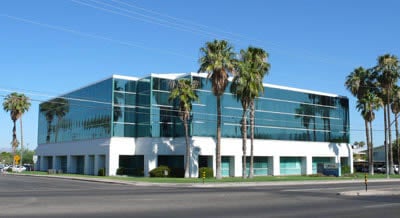Small Business Administration Loan Programs

The Small Business Administration (SBA) was created in 1953 as an independent agency of the US government to protect the interests of small businesses, preserve competitive enterprise, and strengthen the economy. The SBA helps small business owners remain the engine of the United States by offering higher LTVs and lower DSCRs than most conventional loan products. These programs are operated through private-sector lenders that provide loans which are, in turn, guaranteed by the SBA; the Agency has no funds for direct lending or grants. Although these programs are available for any individual, it gives special advantages to women and those belonging to minority groups. These products are available nationwide.
| Loan Type | *Property Type | Min Loan Amount | Max LTV | Term Length | Amortization | Rates |
| SBA | H/M, I/W, M/H, MU, O, R, SS | $1,000,000 | 85 - 90% | 5-15 Years | 15-30 Years | |
| H/M = Hotel/Motel I/W = Industrial/Warehouse M/H = Medical/Healthcare MU = Mixed Use O = Office R = Retail SS= Self-Storage | ||||||
| Additional Information: | Parameters | Loan Features | ||||||
Loan Programs and Parameters
General Small Business Loans – SBA 7(a)
This loan is the most common of all SBA loans because eligibility is based upon the business and principals. This can be used for any type of business, assuming it meets the following criteria:
Loan Program Eligibility: Repayment ability from the cash flow of the business is a primary consideration in the SBA decision process but good character, management capability, collateral, and owner's equity contribution are also important considerations..
Use of Proceeds: Loan proceeds may be used to establish a new business, or assist in the acquisition, operation, or expansion of an existing business.
Loan Repayment Terms: Repayment structures may include self-amortization or a balloon.
Loan Amounts, Fees, and Rates: The specific terms are negotiated between a borrower and an SBA-approved lender.
Loan Application Checklist: Make sure all necessary items are submitted with your SBA 7(a) application.
Real Estate & Equipment Loans – SBA 504
The CDC/504 Loan Program provides financing for major fixed assets such as equipment or real estate.
Loan Program Eligibility: Borrowers must meet certain eligibility requirements to be considered for this loan.
Use of Proceeds: Proceeds must be used for tangible goods that are not considered speculative.
Loan Amounts, Fees, and Rates: Loans, fees, and rates depend ultimately on the use of proceeds. Find out more here.
Loan Application Checklist: Make sure all necessary items are submitted with your SBA 504 application.
SBA Loan Features
Term Length and Amortization: SBA term length and amortization depends on the product as well as the underwriting guidelines of the conventional partner. Terms and amortizations can go up to 25 years in some circumstances.
Recourse: SBA Loans are always recourse, which means that a personal guaranty for the repayment of the loan is required. Full recourse loans make the sponsors guarantying the loan responsible for any and all shortfalls between the loan balance and sales price in the event of default and foreclosure as well as any applicable legal and ancillary fees.
Prepayment Penalty: Prepayment structures can vary greatly, depending on the how the conventional partner structures the loan and what SBA program is guarantying the loan.
Lending Areas: SBA loans are nationwide.
Loan Servicing: SBA Loans are typically serviced by the Certified Development Company (CDC) packaging the loan. The Master Servicer is responsible for day-to-day loan servicing practices including collecting loan payments, managing escrow accounts, analyzing financial statements inspecting collateral and reviewing borrower consent requests. All non-performing mortgages are usually sent to the special servicer. The special servicer is responsible for preforming customary work-out related duties including extending maturity dates, restructuring loans, appointing receivers, foreclosing the lender’s interest in a secured property, managing the foreclosed real estate and selling the real estate. Under some situations, master servicers subcontract some of their responsibilities to a primary or sub servicer in order to uphold the servicing standard when they need additional assistance.


